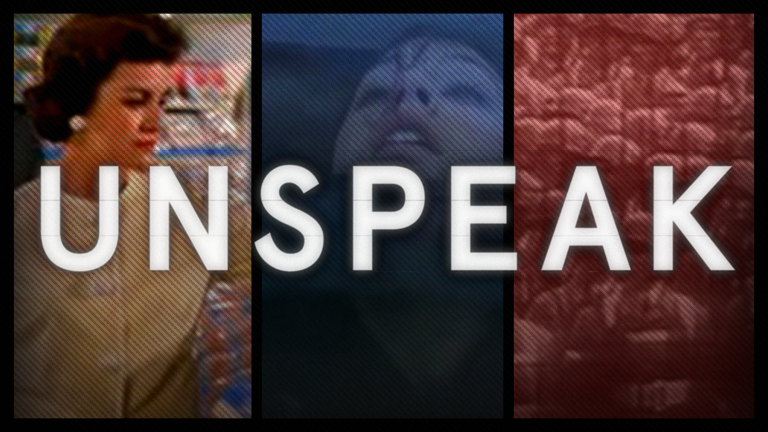Watching Brave New Minds, the sixth episode of the series, you are immediately transported to director Jennifer Abbott’s interpretation of disorder-related terms to a world where you almost feel the threatening force of Unspeak and begin to question the categorization system and meaning of words previously thought to be sane. Appropriately titled, ‘How Big Pharma is Using Unspeak to “Discover” More and More Medical Problems in Everyday Western Life”, viewers can’t help but wonder whether ‘the expanding lexicon of mental disorders is a cynical medicalization of normality’, as described by Poole. Turns out that seemingly normal everyday actions, such as drinking coffee or eating, can turn into a deadly disorder when one ingests too much of such a ‘substance’.
This kind of medicalized rhetoric is equally represented when we examine the data visualizations associated with the likes of ‘ADHD, ‘caffeine intoxication’, ‘erectile dysfunction’, and ‘social anxiety disorder’. In observing key themes associated with these words, we come to discover this expanding lexicon feels like an exploitation of human insecurities that benefits pharmaceutical companies, where every behavior turns into a disorder that has a medicated solution. What ever happened to people just being shy and introverted without being labeled as suffering from ‘social anxiety disorder’?
Overall, in this installment we notice a declined rate of these terms’ use on social media, when compared with words describing the environment, financial crises, social media topics, and elections. Perhaps it’s no surprise conversations surrounding medical issues is considerably lower than less private topics that are widely debated online. Whereas the frequency of tweets in other episodes reaches as high as 31,000, the peak reached here is a mere 4,517 with the term ‘ADHD’.
Reaching a peak of tweets on April 20th, we notice the conversation about ‘ADHD’ is mostly female dominated, with the 31+ age group predominantly participating in the discussion. Can we presume these are parents looking for answers online from the community?
In line with Poole’s definitions, we note that key themes discussed in the context visualization are different symptoms, medicines and various pharmaceutical solutions for treating each of the ‘disorders’. A sampling of key themes: diagnosis, defeat hyperactivity, childhood ritalin, psychiatrist, kids with adhd, and ritalin.
Similar observations can also be made to Social Anxiety Disorder, where predominantly the 41+ age group is discussing it. Could these be parents of shy children looking for guidance with diagnosis and treatment, resulting from the word also being classified as a psychiatric disorder?
Office works beware with this next one: did you know caffeine drinkers need to start watching their cup ‘o joe intake, to avoid being labeled with ‘Caffeine Intoxication’, a new psychiatric disorder?
This term didn’t see much action (was close to 0) until May 29th, and its peak on May 30th with only 126 tweets mentioning the disorder, but we can attribute this rise to ‘binge’ coffee drinking becoming categorized as a mental illness in the newest edition of the DSM V – the American Psychiatric Association’s diagnostic manual of mental disorders — which we see pop up in the newsmap visualization headline.
Noticeably, the main age group involved in this conversation is 21-30, hypothetically because they’re the age group to be most likely to be intoxicated by caffeine?
‘Erectile dysfunction’, which Poole describes as the Unspeak word used to replace ‘impotence’, to sound less insulting and powerless but in contrast more neutral and something that could be fixed, is widely discussed on Twitter. In fact it is one of the only words in this episode which is always a topic of conversation, regardless of whether it’s in the news or not.
We do notice a peak in frequency on June 28th, with 1984 mentioned, mostly male dominated and in the 41+ age group.
The context visualization produces a range of symptoms, causes, and treatments discussed. The range of key issues here is: depression, anxiety, porn addiction, treating, diagnosed with dysfunction, garlic can help cure, herbal formula, formula for treating.
By checking out the related sentiment with these key issues, it’s also apparent they are expressed predominantly in tweets as a negative sentiment.
This article is part of a series of articles that explore the results that Unspeak’s data visualization tools provide. You can find the rest of this series here: Part 1, Part 2, and Part 3. The data visualization tools, which scour social media and the web for Unspeak terms, are just one part of the Unspeak interactive documentary experience which also includes six video episodes and an ever-growing Unspeak dictionary you can contribute to yourself.
 Submarine Channel
Submarine Channel














